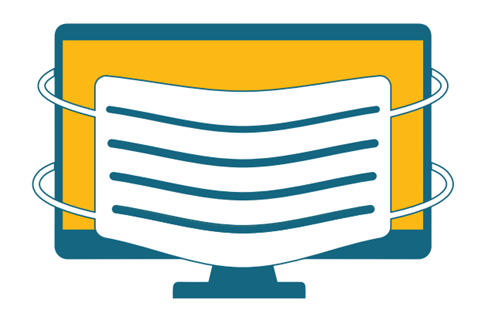Second Coronavirus wave impacts the rental sector
30 October 2020
As Coronavirus proves difficult to shake off and continues to shape the equipment rental industry, Kevin Appleton suggests how new business models could emerge in a Covid-restricted economy.
The last few weeks have confirmed, if there was ever any doubt, that Coronavirus/Covid 19 is going to remain an unwelcome visitor at least through the coming winter and maybe well beyond.

At this stage (and if we know anything now, we know it’s unwise to reach conclusions based on a few weeks of experience), it seems that health systems are coping better.
Hospitalisations and mortality rates are decreasing, but now more than ever we know that theses systems’ ability to cope is extremely fragile.
Across the world, governments are striving to find a balance between not being viewed as casual about their citizens health whilst, at the same time, not wanting to irretrievably crash economies and induce a long-lasting economic depression.
If there was ever a time when I couldn’t want less to be a politician, this is it!
Industry trends: Equipment rental
For the equipment rental industry there are already some observable shifts in behaviours, which have been accelerated through the first few months of Covid-19. I’d expect these to be continuing to shape the industry through the coming months.
There will be less touch and more technology. There are numerous examples (HSS in the UK being a recent one that springs to mind) where a forced reduction in the numbers of rental branches, coupled with an acceptable online ordering capability, has meant that revenue has held up well even with a massively reduced number of operating sites.
Although this was forced upon businesses by Covid-19, it seems highly likely that there will be an overall shrinking in the numbers of equipment rental branches and an accelerated shift to online ordering.
This makes sense in an environment where non-essential contact is heavily discouraged and where people who are placing orders are now very often working from home.
The plus side is that this makes rental businesses potentially much more efficient to run.
Equipment supply and demand
A capacity and equipment rebalance seems likely. Rental volumes, in the main, have recovered extremely well after the first impacts of Coronavirus.
That said, construction equipment manufacturers have been hit hard as their customers have held off capital expenditure decisions in order to conserve cash and see where things are headed.
On the other side of the pandemic (meaning the point at which governments decide we simply have to live with it at a certain level, rather than live in a permanently wounded economy and society), it’s hard to see that there will be immediate demand for additional capacity in the hospitality, leisure, tourism, non-food retail, housing and some other sectors.
Construction industry investment
Conversely, there seems likely to be big investment from governments in infrastructure projects in order to try and kick-start economic activity.
There will also likely be increased demand for certain types of warehousing – particularly related to e-fulfilment. Rather than a strong and broad economic rebound, a patchy recovery – varying widely by end sector – seems more probable.
The impacts of these likely outcomes for the rental sector are profound.
Impact of government infrastructure spending on the rental sector
For businesses who find themselves well-invested, with good capabilities in the area of digital trading and whose end-customers are substantially in sectors that will be beneficiaries of the post-Covid-restricted economy the outlook looks very positive.
This could well be a time when some new names and new business models come to our attention for the first time. As always happens, the opposite is likely also true.
There will be some businesses who are carrying too much of the wrong kind of equipment and whose under-investment in digital capability will be a substantial handicap.
It’s like that point in a cycle road race where the peloton re-forms before a new set of breakaway leaders become visible.
Strategic business management
So, at a strategic level, management focus now has to be on becoming as fit as possible for a post-Covid-restricted world.
This of course needs to be done in addition to exploiting all available opportunities on a daily basis and, crucially, while keeping rental operations safe for staff and customers, and being easy to do business with.
The challenges of the last few months have been tragic for some and exhausting for most.
If ever there was a time to make sure that doing business was not adding to the exhaustion of your customers, this is that time.
*This article was first published under the title ‘Here it comes again’ in the October-November 2020 issue of IRN magazine. To download the magazine and or past issues, click here.

About the author He is a former CEO of Lavendon Group and a chairman and/or non-executive director of a number of companies in the rental and logistics sectors. To comment on these articles, e-mail: [email protected] |
STAY CONNECTED



Receive the information you need when you need it through our world-leading magazines, newsletters and daily briefings.
CONNECT WITH THE TEAM








